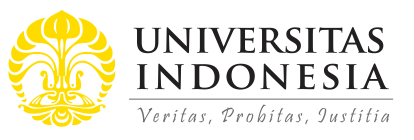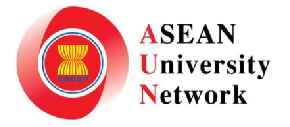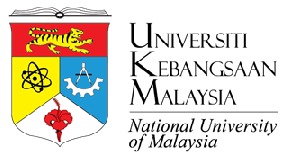
Abstract
The role of higher educational institutions (HEI) in securing a sustainable future for all is not only limited to quality instruction but also includes development-focused research and need-based extension services. Pursuant to national and international commitment and policies, these three fundamental functions of HEIs are mandated to be aligned with the 17 Sustainable Development Goals to intensify their roles in knowledge creation and commercialization while protecting the planet. The City of Dasmariñas, through the Kolehiyo ng Lungsod ng Dasmariñas (KLD) as its locally funded HEI, has taken initial steps to strengthen its sustainable governance through competitive research initiatives and extension programs. Using an exploratory research design, the sustainability efforts initiated by this locally funded HEI were revisited and analyzed. The responses of faculty members, parents, students, policymakers, local government officials, scientific communities, and other stakeholders from various qualitative data collection methods were carefully examined. A series of sustainability planning workshops was then conducted. The results revealed that all research and extension activities of KLD hinged on the localized SDGs. The participants highlighted the importance of internal and external funding in sustaining a strong commitment to research and extension. The competitive incentive system and numerous partnerships with other organizations and institutions were also considered enablers for the institution to create projects that would bring positive effects to the local community. The results were used to develop a sustainability-informed research and extension framework containing a research agenda, institutional actors, sustainability metrics, scope of effects, priority areas, core characteristics and principles, and enabling mechanisms.
References
Adhikari, D. R., & Shrestha, P. (2023). Knowledge management initiatives for achieving sustainable development goal 4.7: Higher education institutions’ stakeholder perspectives. Journal of Knowledge Management, 27(4), 1109–1139. https://doi.org/10.1108/JKM-03-2022-0172
Alam, A. (2022). Mapping a sustainable future through conceptualization of transformative learning framework, education for sustainable development, critical reflection, and responsible citizenship: An exploration of pedagogies for twenty-first century learning. ECS Transactions, 107(1), Article 9827. https://doi.org/ 10.1149/10701.9827ecst
Alazmi, A. A., & Alazmi, H. S. (2022). Closing the gap between research and policy-making to better enable effective educational practice: A proposed framework. Educational Research for Policy and Practice, 22(1), 91–116. https://doi.org/10.1007/s10671-022-09321-4
Al-Shetwi, A. Q. (2022). Sustainable development of renewable energy integrated power sector: Trends, environmental impacts, and recent challenges. Science of The Total Environment, 822, Article 153645. https://doi.org/10.1016/j.scitotenv.2022.153645
Alvino, F., Di Vaio, A., Hassan, R., & Palladino, R. (2021). Intellectual capital and sustainable development: A systematic literature review. Journal of Intellectual Capital, 22(1), 76–94. https://doi.org/10.1108/JIC-11-2019-0259
Asaju, K. (2022). Achieving the Sustainable Development Goals (SDGs) and the intricacies and dynamics of development administration. Journal of Contemporary Sociological Issues, 2(2), 173–189. https://doi.org/10.19184/csi.v2i2.27890
Bardal, K. G., Reinar, M. B., Lundberg, A. K., & Bjørkan, M. (2021). Factors facilitating the implementation of the sustainable development goals in regional and local planning—experiences from Norway. Sustainability, 13(8), Article 4282. https://doi.org/10.3390/su13084282
Batool, F., Malik, S., & Jumani, N. B. (2023). Notions for improved professional development of prospective teachers: Effective collaboration among stakeholders to develop conceptual framework for university-school partnership. Innovations in Education and Teaching International, 61(4), 675–690. https://doi.org/10.1080/14703297.2023.2214130
Bayes, R., Bolsen, T., & Druckman, J. N. (2023). A research agenda for climate change communication and public opinion: The role of scientific consensus messaging and beyond. Environmental Communication, 17(1), 16–34. https://doi.org/10.1080/17524032.2020.1805343
Belda-Miquel, S., Pellicer-Sifres, V., & Boni, A. (2020). Exploring the contribution of grassroots innovations to justice: Using the capability approach to normatively address bottom-up sustainable transitions practices. Sustainability, 12(9), Article 3617. https://doi.org/10.3390/su12093617
Bilsky, E., Moreno, A. C., & Tortosa, A. F. (2021). Local governments and SDG localisation: Reshaping multilevel governance from the bottom up. Journal of Human Development and Capabilities, 22(4), 713–724. https://doi.org/10.1080/19452829.2021.1986690
Bowen, G.A. (2009). Document analysis as a qualitative research method. Qualitative Research Journal, 9(2), 27–40. https://doi.org/10.3316/QRJ0902027
Braun, V., & Clarke, V. (2006). Using thematic analysis in psychology. Qualitative Research in Psychology, 3(2), 77–101. https://doi.org/10.1191/1478088706qp063oa
Brokjøb, L. G., Kochanska, A., & Angelsnes, V. (2022). Applying for external funding of research: Motivation, capacity, and institutional support as perceived by researchers at UiT The Arctic University of Norway. Septentrio Reports, (1). https://doi.org/10.7557/7.6856
Carpentier, C. L., & Braun, H. (2020). Agenda 2030 for Sustainable Development: A powerful global framework. Journal of the International Council for Small Business, 1(1), 14–23. https://doi.org/10.1080/26437015.2020.1714356
Chen, C., & Vanclay, F. (2021). Transnational universities, host communities and local residents: Social impacts, university social responsibility and campus sustainability. International Journal of Sustainability in Higher Education, 22(8), 88–107. https://doi.org/10.1108/IJSHE-10-2020-0397
Cookson, R., Doran, T., Asaria, M., Gupta, I., & Mujica, F. P. (2021). The inverse care law re-examined: A global perspective. The Lancet, 397(10276), 828–838. https://doi.org/10.1016/S0140-6736(21)00243-9
Croese, S., Oloko, M., Simon, D., & Valencia, S. C. (2021). Bringing the global to the local: The challenges of multi-level governance for global policy implementation in Africa. International Journal of Urban Sustainable Development, 13(3), 435–447. https://doi.org/10.1080/19463138.2021.1958335
Dana, L. P., Gurău, C., Hoy, F., Ramadani, V., & Alexander, T. (2021). Success factors and challenges of grassroots innovations: Learning from failure. Technological Forecasting and Social Change, 164, Article 119600. https://doi.org/10.1016/j.techfore.2019.03.009
Darmody, M., Smyth, E., & Russell, H. (2021). Impacts of the COVID-19 control measures on widening educational inequalities. Young, 29(4), 366–380. https://doi.org/10.1177/11033088211027412
Davies, B., Gush, J., Hendy, S. C., & Jaffe, A. B. (2022). Research funding and collaboration. Research Policy, 51(2), Article 104421. https://doi.org/10.1016/j.respol.2021.104421
de Cámara, E. S., Fernández, I., & Castillo-Eguskitza, N. (2021). A holistic approach to integrate and evaluate sustainable development in higher education. The case study of the University of the Basque Country. Sustainability, 13(1), Article 392. https://doi.org/10.3390/su13010392
DeBate, R., Himmelgreen, D., Gupton, J., & Heuer, J. N. (2021). Food insecurity, well-being, and academic success among college students: Implications for post COVID-19 pandemic programming. Ecology of Food and Nutrition, 60(5), 564–579. https://doi.org/10.1080/03670244.2021.1954511
Deng, Q., Li, E., & Yang, Y. (2022). Politics, policies and rural poverty alleviation outcomes: Evidence from Lankao County, China. Habitat International, 127, Article 102631. https://doi.org/10.1016/j.habitatint.2022.102631
Detlor, B., Julien, H., La Rose, T., & Serenko, A. (2022). Community-led digital literacy training: Toward a conceptual framework. Journal of the Association for Information Science and Technology, 73(10), 1387–1400. https://doi.org/10.1002/asi.24639
Fichtenberg, C., Delva, J., Minyard, K., & Gottlieb, L. M. (2020). Health and human services integration: Generating sustained health and equity improvements. Health Affairs, 39(4), 567–573. https://doi.org/10.1377/hlthaff.2019.01594
Filgona, J., Sakiyo, J., & Gwany, D. M. (2020). Teachers’ pedagogical content knowledge and students’ academic achievement: A theoretical overview. Journal of Global Research in Education and Social Science, 14(2), 14–44.
Filho, W. L., Eustachio, J. H. P. P., Caldana, A. C. F., Will, M., Salvia, A. L., Rampasso, I. S., Anholon, R., Platje, J., & Kovaleva, M. (2020). Sustainability leadership in higher education institutions: An overview of challenges. Sustainability, 12(9), Article 3761. https://doi.org/10.3390/su12093761
Ford, J. D., King, N., Galappaththi, E. K., Pearce, T., McDowell, G., & Harper, S. L. (2020). The resilience of indigenous peoples to environmental change. One Earth, 2(6), 532–543. https://doi.org/10.1016/j.oneear.2020.05.014
Gao, X., & Teets, J. (2021). Civil society organizations in China: Navigating the local government for more inclusive environmental governance. China Information, 35(1), 46–66. https://doi.org/10.1177/0920203X20908118
Giesenbauer, B., & Müller-Christ, G. (2020). University 4.0: Promoting the transformation of higher education institutions toward sustainable development. Sustainability, 12(8), Article 3371. https://doi.org/10.3390/su12083371
Goralski, M. A., & Tan, T. K. (2020). Artificial intelligence and sustainable development. The International Journal of Management Education, 18(1), Article 100330. https://doi.org/10.1016/j.ijme.2019.100330
Guarini, E., Mori, E., & Zuffada, E. (2021). Localizing the Sustainable Development Goals: A managerial perspective. Journal of Public Budgeting, Accounting & Financial Management, 34(5), 583–601. https://doi.org/10.1108/JPBAFM-02-2021-0031
Heleta, S., & Bagus, T. (2021). Sustainable Development Goals and higher education: Leaving many behind. Higher Education, 81(1), 163–177. https://doi.org/10.1007/s10734-020-00573-8
Hook, A., Court, V., Sovacool, B. K., & Sorrell, S. (2020). A systematic review of the energy and climate impacts of teleworking. Environmental Research Letters, 15(9), Article 093003. https://doi.org/10.1088/1748-9326/ab8a84
Jessani, N. S., Valmeekanathan, A., Babcock, C. M., & Ling, B. (2020). Academic incentives for enhancing faculty engagement with decision-makers—considerations and recommendations from one School of Public Health. Humanities and Social Sciences Communications, 7, Article 148. https://doi.org/10.1057/s41599-020-00629-1
Jiménez-Aceituno, A., Peterson, G. D., Norström, A. V., Wong, G. Y., & Downing, A. S. (2020). Local lens for SDG implementation: Lessons from bottom-up approaches in Africa. Sustainability Science, 15, 729–743. https://doi.org/10.1007/s11625-019-00746-0
Kumar, V. (2017). The role of university research centers in promoting research. Journal of the Academy Marketing Science, 45, 453–458. https://doi.org/10.1007/s11747-016-0496-3
Langrafe, T. d. F., Barakat, S. R., Stocker, F., & Boaventura, J. M. G. (2020). A stakeholder theory approach to creating value in higher education institutions. The Bottom Line,33(4), 297–313. https://doi.org/10.1108/BL-03-2020-0021
Lee, H. L., & Rammohan, S. V. (2024). Improving social and environmental performance in global supply chains. In Y. Bouchery, C. J. Corbett, J. C. Fransoo, & T. Tan (Eds.), Sustainable supply chains: A research-based textbook on operations and strategy (pp. 439–464). Springer Cham. https://doi.org/10.1007/978-3-319-29791-0_20
Lerman, L. V., Gerstlberger, W., Lima, M. F., & Frank, A. G. (2021). How governments, universities, and companies contribute to renewable energy development? A municipal innovation policy perspective of the triple helix. Energy Research & Social Science, 71, Article 101854. https://doi.org/10.1016/j.erss.2020.101854
Maiya, A. K., & Aithal, P. S. (2023). A review-based research topic identification on how to improve the quality services of higher education institutions in academic, administrative, and research areas. International Journal of Management, Technology, and Social Sciences (IJMTS), 8(3), 103–153. https://doi.org/10.47992/IJMTS.2581.6012.0292
Masinde, M., & Coetzee, J. (2023). Modelling research productivity of university researchers using research incentives to crowd-in motivation. International Journal of Productivity and Performance Management, 72(5), 1509–1530. https://doi.org/10.1108/IJPPM-12-2020-0669
Masuda, H., Kawakubo, S., Okitasari, M., & Morita, K. (2022). Exploring the role of local governments as intermediaries to facilitate partnerships for the Sustainable Development Goals. Sustainable Cities and Society, 82, Article 103883. https://doi.org/10.1016/j.scs.2022.103883
Menon, S., & Suresh, M. (2020). Synergizing education, research, campus operations, and community engagements towards sustainability in higher education: A literature review. International Journal of Sustainability in Higher Education, 21(5), 1015–1051. https://doi.org/10.1108/IJSHE-03-2020-0089
Mertens, D. M. (2021). Transformative research methods to increase social impact for vulnerable groups and cultural minorities. International Journal of Qualitative Methods, 20, Article 16094069211051563. https://doi.org/10.1177/16094069211051563
Moodie, N., Ward, J., Dudgeon, P., Adams, K., Altman, J., Casey, D., Cripps, K., Davis, M., Derry, K., Eades, S., Faulkner, S., Hunt, J., Klein, E., McDonnell, S., Ring, I., Sutherland, S., & Yap, M. (2021). Roadmap to recovery: Reporting on a research taskforce supporting Indigenous responses to COVID-19 in Australia. Australian Journal of Social Issues, 56(1), 4–16. https://doi.org/10.1002/ajs4.133
Muhirwa, F., Shen, L., Elshkaki, A., Hirwa, H., Umuziranenge, G., & Velempini, K. (2023). Linking large extractive industries to sustainable development of rural communities at mining sites in Africa: Challenges and pathways. Resources Policy, 81, Article 103322. https://doi.org/10.1016/j.resourpol.2023.103322
Nardini, G., Rank-Christman, T., Bublitz, M. G., Cross, S. N. N., & Peracchio, L. A. (2020). Together we rise: How social movements succeed. Journal of Consumer Psychology, 31(1), 112–145. https://doi.org/10.1002/jcpy.1201
Ningrum, D., Malekpour, S., Raven, R., & Moallemi, E. A. (2022). Lessons learnt from previous local sustainability efforts to inform local action for the Sustainable Development Goals. Environmental Science & Policy, 129, 45–55. https://doi.org/10.1016/j.envsci.2021.12.018
Norton, G. W., & Alwang, J. (2020). Changes in agricultural extension and implications for farmer adoption of new practices. Applied Economic Perspectives and Policy, 42(1), 8–20. https://doi.org/10.1002/aepp.13008
Patalinghug, M. E., & Bustamante, R. S. (2022). Community needs assessment as basis for a community extension program in a state-funded college. Science International (Lahore), 3(34), 273–275.
Perry, B., Diprose, K., Buck, N. T., & Simon, D. (2021). Localizing the SDGs in England: Challenges and value propositions for local government. Frontiers in Sustainable Cities, 3, Article 746337. https://doi.org/10.3389/frsc.2021.746337
Quitoras, M. C. L., & Abuso, J. E. (2021). Best practices of higher education institutions (HEIs) for the development of research culture in the Philippines. Pedagogical Research, 6(1). https://doi.org/10.29333/pr/9355
Ramaswamy, M., Marciniuk, D. D., Csonka, V., Colò, L., & Saso, L. (2021). Reimagining internationalization in higher education through the United Nations Sustainable Development Goals for the betterment of society. Journal of Studies in International Education, 25(4), 388–406. https://doi.org/10.1177/10283153211031046
Rasoolimanesh, S. M., Ramakrishna, S., Hall, C. M., Esfandiar, K., & Seyfi, S. (2023). A systematic scoping review of sustainable tourism indicators in relation to the Sustainable Development Goals. Journal of Sustainable Tourism, 31(7), 1497–1517. https://doi.org/10.1080/09669582.2020.1775621
Ravetz, J. R. (2020). Scientific knowledge and its social problems (2nd ed.). Routledge. https://doi.org/10.4324/9781003075158
Reed, M. S., Ferré, M., Martin-Ortega, J., Blanche, R., Lawford-Rolfe, R., Dallimer, M., & Holden, J. (2021). Evaluating impact from research: A methodological framework. Research Policy, 50(4), Article 104147. https://doi.org/10.1016/j.respol.2020.104147
Regadio, C., & Tullao, T. (2015). The role of the government in enhancing research productivity of SUCs and private HEIs in the Philippines. DLSU Research Congress, 3(1), 1–8. https://doi.org/10.13140/RG.2.1.2591.2161
Reuter, T. A. (2023). SDG localization: Finding the middle ground to top-down and bottom-up approaches with the help of digital networking. Sustainability: Science, Practice and Policy, 19(1), Article 2207372. https://doi.org/10.1080/15487733.2023.2207372
Roll, K., MacLeod, M., Agbodjah, S., & Siller, I. M. S. (2024). Learning in action: Embedding the SDGs through the reach alliance. Sustainable Earth Reviews, 7(1), 1–9. https://doi.org/10.1186/s42055-024-00079-6
Saric, J., Breu, T., Fokou, G., Gass, S.-J., Kiteme, B., Masanja, H., Utzinger, J., Zeleke, G., & Käser, F. (2023). Research−implementation organisations and their role for sustainable development. Sustainable Development, 31(3), 1401–1416. https://doi.org/10.1002/sd.2455
Schulz, A. J., Mehdipanah, R., Chatters, L. M., Reyes, A. G., Neblett Jr., E. W., & Israel, B. A. (2020). Moving health education and behavior upstream: Lessons from COVID-19 for addressing structural drivers of health inequities. Health Education & Behavior, 47(4), 519–524. https://doi.org/10.1177/1090198120929985
Shabalala, L. P., & Ngcwangu, S. (2021). Accelerating the implementation of SDG 4: Stakeholder perceptions towards initiation of sustainable community engagement projects by higher education institutions. International Journal of Sustainability in Higher Education, 22(7), 1573–1591. https://doi.org/10.1108/IJSHE-04-2020-0123
Sibhensana, B., & Maistry, S. (2023). Conceptualising public-private partnerships for social innovation through community engagement in higher education institutions. South African Journal of Higher Education, 37(1), 185–205. https://doi.org/10.20853/37-1-5669
Skhosana, R. M., & Nel, H. (2023). Exploring community participation towards sustainable livelihoods. Southern African Journal of Social Work and Social Development, 35(3). https://doi.org/10.25159/2708-9355/12193
Sudargini, Y., & Purwanto, A. (2020). The effect of teachers pedagogic competency on the learning outcomes of students. Journal of Industrial Engineering & Management Research, 1(4), 1–8.
Tamsah, H., & Yusriadi, Y. (2022). Quality of agricultural extension on productivity of farmers: Human capital perspective. Uncertain Supply Chain Management, 10(2), 625–636. https://doi.org/10.5267/j.uscm.2021.11.003
Tantanee, S., Apichayakul, P., Buranajarukorn, P., Pardthaisong, L., Suwanprasit, C., Charoenpanyanet, A., & Sin-Ampol, P. (2019). Policies to promote research and innovation in developing countries’ universities: The case of Thailand. Indian Journal of Public Administration, 65(3), 718–732. https://doi.org/10.1177/0019556119840956
Tien, N. H., Ngoc, N. M., Trang, T. T. T., & Mai, N. P. (2022). Sustainable development of higher education institutions in developing countries: Comparative analysis of Poland and Vietnam. Contemporary Economics, 16(2). https://dx.doi.org/10.5709/ce.1897-9254.477
Tien, N. H., Viet, P. Q., Duc, N. M., & Tam, V. T. (2021). Sustainability of tourism development in Vietnam’s coastal provinces. World Review of Entrepreneurship, Management and Sustainable Development, 17(5), 579–598. https://doi.org/10.1504/WREMSD.2021.117443
Tomasi, S., Paviotti, G., & Cavicchi, A. (2020). Educational tourism and local development: The role of universities. Sustainability, 12(17), Article 6766. https://doi.org/10.3390/su12176766
Tsalis, T. A., Malamateniou, K. E., Koulouriotis, D., & Nikolaou, I. E. (2020). New challenges for corporate sustainability reporting: United Nations’ 2030 agenda for sustainable development and the Sustainable Development Goals. Corporate Social Responsibility and Environmental Management, 27(4), 1617–1629. https://doi.org/10.1002/csr.1910
van Lunenburg, M., Geuijen, K., & Meijer, A. (2020). How and why do social and sustainable initiatives scale? A systematic review of the literature on social entrepreneurship and grassroots innovation. VOLUNTAS: International Journal of Voluntary and Nonprofit Organizations, 31(5), 1013–1024. https://doi.org/10.1007/s11266-020-00208-7
Verlegh, P. W. J. (2024). Perspectives: A research-based guide for brand activism. International Journal of Advertising, 43(2), 388–402. https://doi.org/10.1080/02650487.2023.2228117
Wang, J., Yang, M., & Maresova, P. (2020). Sustainable development at higher education in China: A comparative study of students’ perception in public and private universities. Sustainability, 12(6), Article 2158. https://doi.org/10.3390/su12062158
Ylöstalo, H. (2019). The role of scientific knowledge in dealing with complex policy problems under conditions of uncertainty. Policy & Politics, 48(2), 259–276. https://doi.org/10.1332/030557319X15707904457648
Zhang, L., & Sivertsen, G. (2023). The new research assessment reform in China and its implementation. In M. Hubrec & E. Višňovský (Eds.), Towards a new research era (pp. 239–252). Brill. https://doi.org/10.1163/9789004546035_017
Recommended Citation
Bastida, Ernesto L. Jr.; Alvaran, Cecilia Raquel C.; De Lara, Rudy Bhonne R.; Abargos, Jerbert M.; Saysi, Jhonies G.; Auxillos-Cualbar, Kenneth A.; and Millo, Lodelio D.
(2024).
Creating a Framework for Sustainable Research and Extension Engagements in an Education Institution Funded by the Local Community.
ASEAN Journal of Community Engagement, 8(1), 3-23.
Available at: https://doi.org/10.7454/ajce.v8i1.1303







